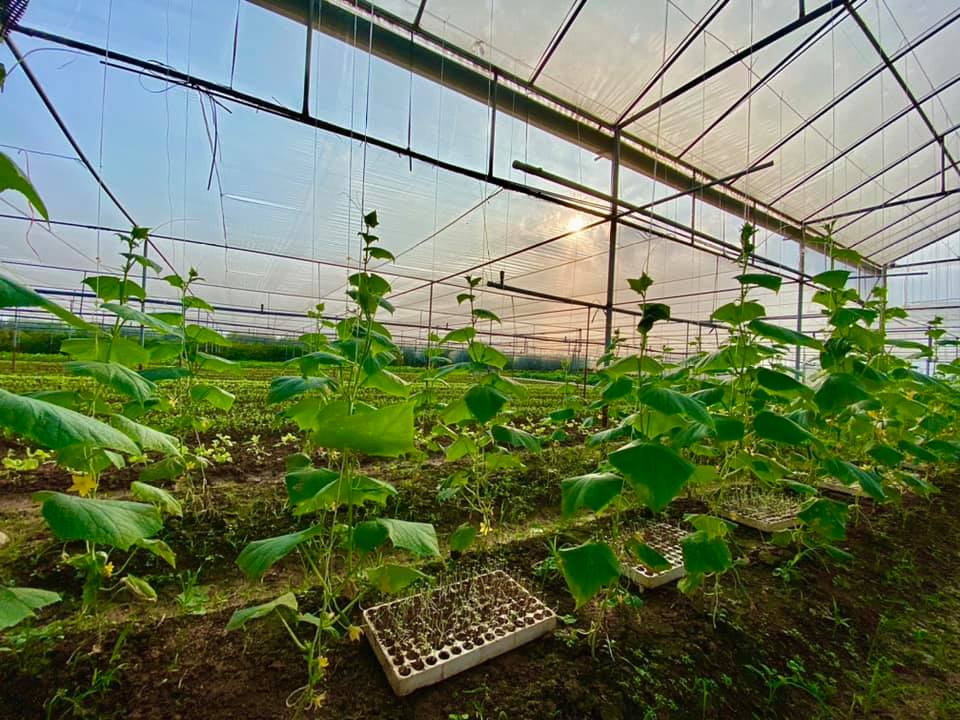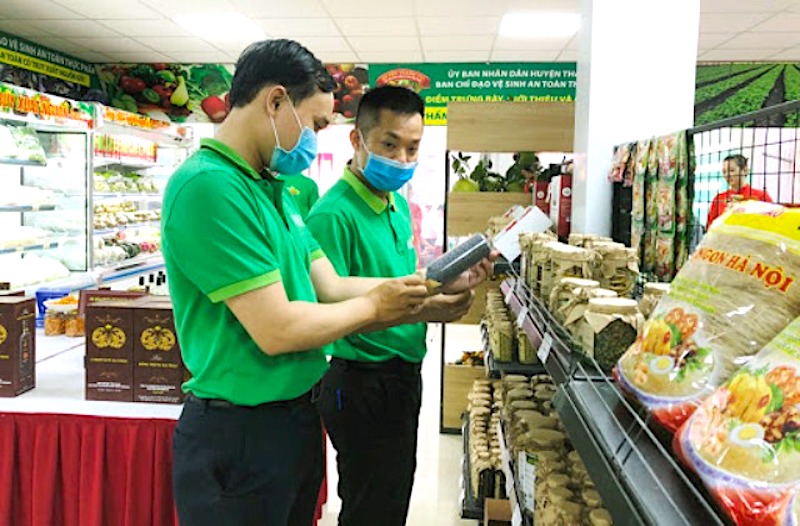Hanoi agriculture to achieve growth of 3% this year
The farm industry will continue to face many challenges in the context of the persisting pandemic.
Hanoi’s agricultural sector strives to achieve growth of 2.5-3% in 2022, contributing to the realization of national agricultural targets.
| Chu Tam farming zone in Gia Lam District. Photo: Chu Tam Clean Vegetable Co-operative |
The capital’s agriculture sector continues to innovate production methods as well as develop concentrated farming areas and specialty products, according to Chu Phu My, Director of the Hanoi Department of Agriculture and Rural Development.
“More cooperatives will be formed to organize production and develop business along the value chain,” he said.
The Department of Agriculture and Rural Development will work out policies to attract investment in high-tech agriculture, preliminary processing and manufacturing of agricultural products as well as conservation.
According to Vice Chairman of Hanoi People's Committee Nguyen Manh Quyen, the drafting of the amendments for the revised Capital Law is focusing on encouraging the development of large-scale and high-tech agriculture.
The city will plan stable land reserve for urban agriculture and strengthen training of high-quality human resources. In addition, it is also targeting the creation of the networks of businesses, digital technology, investment services and smart rural areas, Quyen added.
Hanoi has 160 high-tech agricultural production models (105 models in the field of crop production, 39 in livestock production, 15 in fisheries and one combining cultivation and animal husbandry). The value of high-tech agricultural products accounted for about 35% of the total value of agricultural production in the city.
In 2022, the agricultural industry will continue to face many challenges in the context of the persisting pandemic that will keep affecting production, domestic consumption as well as exports.
The city is expected to go on with improving the business environment, strengthening preferential policies for businesses in terms of credit, business premises, trade promotion, re-planning of industrial parks for the development of a modern and sustainable agricultural industry.
Last year, the city's agricultural, forestry and fishery production surged by 3.46% over 2020. Food output reached 1.05 million tons, up 0.9% against the previous year. Livestock production grew strongly with the output of trên meat of all kinds being 405,417 tons, up 7% year on year. Many business models using high-quality varieties of plant and livestock have been deployed.
Promoting agricultural restructuring
| A showroom to introduce and sell products under the One Commune One Product program in Thanh Tri District. Photo: The Hanoi Times |
The pandemic has changed the demand and sales methods, especially in the domestic market, requiring an appropriate transformation in production organization as well as restructuring the distribution channels and promoting the connection between supply and demand.
Climate change is causing severe impacts while natural disasters are unpredictable. Drought and saltwater intrusion are becoming more frequent. This context requires the agricultural sector to have timely and proper responses as well as long-term strategy to develop production and minimize damages.
According to Minister of Agriculture and Rural Development Le Minh Hoan, in 2022, the agriculture sector will stick to the government’s approach of safe, flexible adaptation to the pandemic and effective disease control.
The sector will focus on solving difficulties in production and business activities, effectively supporting people and businesses and promoting agricultural restructuring according to key product groups, sectors and regions.
The Ministry of Agriculture and Rural Development is seeking the Prime Minister’s permission to review and amend 87 legal documents covering the field of agriculture, thus removing obstacles for businesses.
In 2022, total export turnover of agricultural, forestry and fishery products is expected to reach $49 billion and the production value would grow 2.9 to 3%.
From the business perspective, Dinh Cao Khue, Chairman of the Board of Directors of Dong Giao Foodstuff Export JSC (Doveco) suggested the ministries of Agriculture and Rural Development, and Industry and Trade should provide solutions to facilitate investment in thorough processing and the diversification of processed products in the market.
“Local banks should support businesses for investing in the agricultural sector, extending loan terms to between 8 and 10 years so that businesses can rest assured to invest in farming and processing agricultural products,” he said.
In 2021, the agriculture sector significantly contributed to the growth and development of the country's economy. Export turnover of agricultural products reached a record high, to more than $48.6 billion, up 15% compared to 2020.












